- Home
- Scott Turow
KC09 - Identical Page 15
KC09 - Identical Read online
Page 15
“The blood on the knuckle?”
“Goren said maybe Dita did reach back to her scalp before losing consciousness, just grazed the area. I say that would have been her right hand. Truth, of course, is it could have happened either way. So we never had a meeting of the minds about the timing. Pathologist thought she gets slapped and is just stunned by that when he grabs her again and pounds her head back.”
“Why stunned?”
“Well, there’s no sign of a struggle. Didn’t even turn her head as he’s bouncing it off the furniture—blows are more or less in one place. And look at her right hand. You’d have thought she might have fought back and he would have grabbed it. No bruising at the wrist. Same with the left hand. And there weren’t any foreign skin cells under her fingernails. DNA these days might show something different. But we all figured he caught hold of her pretty fast. Strong guy, though. Try grabbing my head to push it back.” Evon did. “Not so easy. There’s some natural resistance,” Tim said, “even if she didn’t have time to lift a hand.”
“And what was the significance of the timing? What did it mean to you if there was a lapse between the blows?”
“Well, hell, if she’s slapped and sits there with the assailant for ten minutes, instead of screaming for help, it’s got to be somebody she knew.”
“Maybe an intruder held a knife or a gun on her.”
“And then beat her to death, instead of using the weapon?”
“A gun makes noise.”
“So does breaking a window. More likely someone she knew.”
“That all fits Cass, right?”
“Or Paul. Sure. Like I said, Zeus was so hysterical, putting on so much pressure for results, it was hard for anybody to think straight.”
His remark reminded Evon of something.
“You said last month that Zeus thought Dita had been killed by his enemies.”
“The Greek mob.”
“Right, but I didn’t understand that.”
Tim laughed and sank back into the sofa cushions. This was going to be another one of his stories.
“Around Athens, there’s a bunch called the Vasilikoses. Started out running a pretty big protection racket in the twenties. Smart guys. Their motto is ‘Not a lot from a little, but a little from a lot.’ Twenty-five drachmas a week. Who can depend on the police anyway? Nikos, Zeus’s dad, he’s here but kind of a wannabe who’s got some connection to a lot of these big-time Athens gunslingers. During WW Two, Zeus gets sent as a translator to join the Allied forces in Greece when they arrived in October 1944, once the Germans took a powder. Apparently, Nikos has his son check in with his pals. Zeus was there until May 1946, and he comes home with his pretty young wife, Hermione, whose maiden name is Vasilikos, and baby Hal, who’s a year then, and a duffel bag full of cash and booty that the Greek mob wanted out of the country, before the civil war starts and the commies win and take it all away from them.”
“Zeus told you this?”
“A little. He didn’t need to say much. This was pretty much common knowledge around St. D’s.”
“And what’s with the duffel bag?”
Tim laughed the same way, made merry, like most cops, by the eternal oddities of the way humans behaved.
“Zeus builds his first shopping center in 1947. You know, he’s a genius. He figures out Americans want to shop. But where’s the do-re-mi come from to get started, he’s just some mustered-out soldier boy from Kewahnee?”
“The duffel bag?”
“So they say. So Zeus gets rich, but you know, back in Athens, there’s kind of a dispute. Cause nobody there seems to have thought their money was going to be Zeus’s bankroll. He’s like, ‘This is America, you don’t hide money under the mattress, besides it worked out.’ To Zeus’s way of thinking, he got a loan which he paid back with big-time interest, and in Athens they’re thinking, ‘No, guess we made an investment and we want a piece forever.’ And Zeus is like, ‘Go jump.’ And they’re like, ‘We’ll see.’ Hermione’s dad, Zeus’s protector, he’d kicked the bucket the year before Dita was murdered. So it fits. Even the way Zeus died. You ever hear that story?”
She knew Zeus had died in an accident in Greece. No more than that.
“The Greeks,” said Tim, “they’re always running back to the homeland, but Zeus, because of the bad blood, he never wants to go. From the day Dita dies, Zeus had this notion to rebury her on Mount Olympus and finally, on the fifth anniversary of her death, Hermione agrees. Some of her Vasilikos relatives come up for the ceremony. And the next morning, Zeus goes out for a walk, to meditate over the grave, and he never returns. They find him five hundred feet down the mountain.” Tim shifted his big shoulders. “Around St. D’s, there weren’t many who didn’t think he was shoved.”
Evon had never heard a word about Greek gangsters from Hal, even though he often spoke about both of his parents when he had a drink in his office at the end of the day. What did they say? A vast fortune washes away the sins of prior generations. To Hal, Zeus was an Olympian figure, the embodiment of the pure genius of entrepreneurship. Hal probably knew no better, either. Or didn’t ask. Tim had already explained it to her.
People believe what they want to believe.
16.
Sofia—February 11, 2008
The same afternoon, Tim drove out to Easton University. It was not forty minutes this time of day, when the traffic was good. Easton was what people thought of when they talked about college, rolling hills and redbrick buildings with classic white gables and Doric columns, the oldest private university in the Midwest. It wasn’t all rich types any more. All kinds of parents and their kids—Indian and Vietnamese and Polish, black and brown—had figured out that a school like this was the ticket for life. These young people, all of them, when you got their attention away from their damn cell phones, shared the same alert, confident look, so different from that of the poor kids Tim had encountered when he was on the job. These youngsters met your eye and smiled; they had nothing to fear from grown-ups. Demetra, Tim’s middle daughter, was an Easton grad. She’d attended with the benefit of a substantial scholarship, and Tim and Maria had both loved visiting, seeing their child strolling around among all these young people, radiant with their prospects in life.
He found the Alumni House, a small brick building with a white wooden arch over the doorway. He had a cock-and-bull story ready for the woman who greeted him at the reception desk.
“My nephew was at my house and lost his class ring down the drain in the sink. Thought maybe I’d contact the company that sold it to him and see if they could replace it. Any chance somebody here knows the outfit?”
“What class?”
“Seventy-nine.”
Even after close to twenty-five years as a PI, Tim still had a hard time with the fibbing, a frequent occupational hazard, since he liked to believe that his whole professional life had been an effort to get at the truth. But when he was carrying a badge, he gave a lot of defendants a line about how much better it would go for them if they just puked up all the ugly details of a murder, when he knew for a stone fact that many of those kids might walk away, if they just shut up. Every job required some white lies now and then to do it right. And he knew how far he could go. He never said anything that would have gotten his wrinkled old ass arrested.
The woman was gone a long time, but came back with the name of a company in Utah. Apparently they’d been doing business with Easton College for half a century.
He then crossed the campus to have a look at the law school’s yearbooks. Easton University School of Law was a big gray stone Gothic hunk with a large central courtyard. The dorms, the classrooms, the law library were all in here. Kids from all over campus came to lounge on the huge lawn in the spring.
The yearbooks, he discovered, were stored in the library. What a gorgeous place that turned out to be, three stories tall, with long oak tables that looked like there should be armored knights surrounding them, and oak wainscoting clear
to the ceiling. The balcony level was rimmed by a polished brass rail. One of the research librarians retrieved the 1982 volume for Tim without any question, even though he was prepared with another story about how he wanted to get a photocopy of his nephew to use for his fiftieth-birthday card. The yearbook for 1982 contained two photos of Paul Gianis, a head shot, like the ones for the other 160 graduates, and a group pose of Paul among the members of the law review. Seated with the editors in the front row, Paul had a hand on each thigh. And no dang ring visible, not on either hand. The picture had to have been snapped only months before Dita was killed. The photos of Paul in the 1980 and 1981 volumes were no help either.
There were two computers near the front desk for general use, mostly so kids could check their e-mail, and no password was needed to access a Web browser. Half his work as a PI could be done on the Internet these days, and for a person his age, Tim thought he could handle a computer reasonably well. Nothing fancy. He was way out of his league with cases involving computer security breaches. But he could type a name into a search engine.
There were hundreds of images online of Paul Gianis, most from the last decade. Tim examined them one by one, but whenever Paul’s hand was visible, the only ring he wore was his wedding band.
Driving back to town, with the rush hour starting, he called the company that manufactured Easton’s class rings.
“Oh dear,” said the woman he got on the phone. “We’ll have to get the records from the warehouse. And I don’t know if we can replace it. Styles change, you know.”
“Love to surprise him if I can.”
“We’ll check.”
His last stop was to try to serve Cass with the subpoena Tooley had drafted. Sofia and Paul lived in Grayson, an area at the western edge of the county that had long been home to teachers and cops and firefighters who were forced by residency requirements to remain in the Tri-Cities. It was a neighborhood of tidy three-bedroom houses, one step up from the bungalows of Tim’s neighborhood in Kewahnee. On the corners there tended to be larger houses with sloping lawns, usually owned by the doctors and lawyers, bankers and insurance agents who served the locals. The Gianis house was one of the very nicest, built, according to what Tim had read in the Tribune archives, near the turn of the nineteenth century by the Morton family who owned the department stores. The newspaper referred to the architectural style as ‘Romanesque revival,’ ochre brick decorated with lots of concrete festoonery in the shapes of laurels. It had a green tile roof, and copper gutters that had taken on that seafoam patina. There were lights on upstairs but no cars in the driveway. He focused his binoculars on the house for several minutes, but he saw no sign of movement. Both of Paul and Sofia’s sons were in college at Easton, according to the papers.
By now, he needed to pee again. There were times he felt the urge the minute he walked out of the john. Going tinkle every ten minutes was just part of being an old guy. Sometimes, he’d study his body with amazement at the damage time had done, all the sagging and the pallor of his flesh, white as a fish belly. There was so much that didn’t work any more. Sometimes it seemed to take a minute just to pick up a coin. And his mind often reminded him of a car in which the shifter just couldn’t find the gear. But occasionally there were pleasing surprises. Yesterday morning he woke up with a hard-on and considered it like a visitor from another planet. He’d thought he was pretty much dead in that area and felt good about himself for hours afterward.
There were so many retired police officers out this way that the Fraternal Order of Police lodge had bought up the VFW hall several years back, when the veterans’ group pretty much went broke. The yeasty odor of spilled beer greeted him as soon as he opened the door. The big hall on the first floor was empty, but he could hear noise above and took the worn stairs.
Up here, there was a long old-fashioned mahogany bar with mirrors behind it. The rest of the room was occupied by a few eight-sided card tables with green felt. It looked like nobody had taken a mop or broom to the pine floor in several years. A crowd of old-timers were around one of the tables, with several onlookers as the players tossed around quarters and cards. Tim wasn’t three steps into the room when he heard his name called at volume.
“Jesus Christ, I thought you were dead. I really did.” It was Stash Milacki, who had a seat at the table, laughing so hard his face was bright red. Stash had a brother, Sig, who was crooked as a stick and got Stash made detective, but Stash wasn’t bad on the job, although he never reached Homicide, which was what everybody wanted.
Tim laughed at the sight of him, but went off to do his business before returning to shake Stash’s hand. Stash must have put on fifty pounds since Tim saw him last, and he was no lightweight back then. Now he was an old guy with a red face who had to spread his legs on the barrel chair to make way for his belly.
“Talk to him and don’t talk to me,” someone said. Tim only now recognized Giles LaFontaine on the other side of the table. With his trim gray moustache, Giles looked twenty years younger than Stash. Tim had shared a beat with Giles when he first was on the street. “So you just another broke old bastard like the rest of us, can’t afford to go play golf in Florida?” Giles asked.
“Eh,” said Tim. “I been lucky. Still work now and then as a PI.”
“Really?” said Stash, like he didn’t believe him.
“Do some stuff for ZP, for one,” said Tim. It was the only one at the moment, but no point being precise.
“Now what kind of piece of shit is that?” Giles asked. “Those commercials? I had my grandson with me the other day and one of these ads come on, the one with the old girlfriend, and the grandson he’s sure it’s a joke. ‘No,’ I tell him, ‘this crazy man, Kronon, he really thinks Paul Gianis killed that girl.’ That’s true, right?”
“That’s true.”
“I owned the TV station,” said Giles, “I wouldn’t let him put that shit on the air.” Paul lived in this neighborhood for years and people here were proud of his prominence and success. There were a couple of fellas around the table who didn’t appear as vehement as Giles, but he wouldn’t back down. “The brother done his time, that oughta be the end of it. It’s twenty-five years later and now all the sudden this crackpot says Paul was in on it. That doesn’t wash, not with me.”
“What’s the brother up to now?” Tim asked.
Giles shrugged as he peered at his cards. A guy next to him, Italian or Mexican from his looks, said, “Didn’t the papers say he wanted to teach ex-cons? Like what he’d been doing inside?”
Another fellow, sitting behind the players, spoke up.
“Bruce Carroll lives right next door to the Gianises. You know him?”
Tim didn’t.
“Bruce said he and the missus are home most days and they haven’t caught sight of him. Cass. That’s the brother, right? He’s probably hiding out from the reporters, but they haven’t seen him go in or out, except the day he came home from prison.”
“Did he leave town?” Tim asked.
The man who’d been speaking just shook his head. “Might be. But if I spent twenty-five years in the can, I’d want to hang out with my family. Paul’s his identical twin, isn’t he? Close, right? For years, I been reading how Paul and him wrote each other every day.”
“Me?” said another man. “Twenty-five years inside? I’d get four girls and a bottle of whiskey and tell them to see how much I could take.”
The men around the table all laughed.
For the most part, Tim didn’t spend much time with ex-cops. There were three former Homicide dicks he’d played golf with every summer Saturday for at least thirty years, but that had stopped for him when Maria took sick. That proved to be the end of the game, too. Dannaher’s back was too bad for him to swing much, and Rosario couldn’t see where the ball went. Carter could see fine, but forgot where the ball had landed by the time he left the tee. Leaving aside the golf buddies, Tim’s closest pals were all former musicians. Some still played and Tim loved to he
ar them, but his hands were too stiff for him to do much with a trombone, and his embouchure was gone. Mostly he and his friends listened to music, grunting at the best passages, telling stories of old gigs and good players. His best friend, Tyronius Houston, had moved out to Tucson and begged Tim to visit. There were a couple of others who’d be showing up around here again in April, once the weather improved.
Tim used the john again before he departed, then drove back to the Gianises’ house and sat across the street. Near six, a car finally pulled into the garage. When the door went up, he caught sight of another vehicle parked inside, a gray Acura. These days, Paul was probably being driven around by his campaign staff. Given the darkness at 5:30, when the lights came on in the first floor of the house, Sofia was displayed as clearly as if she were on a stage set. With his binoculars, Tim watched her whisk through the kitchen in her green surgical scrubs. He put his car in gear and pulled into their round driveway.
Sofia Michalis had been one of those kids who stood out from the time she could talk. Maria was friendly at church with Sofia’s mom, who, with four older kids already, tended to act like her baby was possessed. Sofie could read, literally, not long after she was upright, and started school a year early. But unlike some other kids Tim had seen who were isolated by phenomenal intelligence, Sofia always seemed outwardly normal, with huge intense black eyes, almost like a cartoon character’s. She’d been a classmate of Tim’s middle daughter, Demetra, and Sofia was one of those little girls you couldn’t have in the house too often. She’d play jacks with De and then, if Tim was at home, would stop off in the kitchen to ask him about his latest case. By the age of seven, Sofia was reading the newspaper cover to cover every day. She was preoccupied frequently with questions about the methodology of detection—how did fingerprint powder stick to the ridges? How could you tell for sure what a person reduced to a skeleton had looked like? It was all he could do at times to keep from answering, ‘How in the hell do I know?’ But then, after mulling over his answers, she would turn back into a kid.

 Testimony
Testimony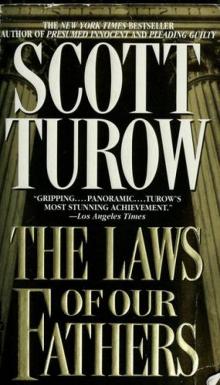 The Laws of Our Fathers
The Laws of Our Fathers Ordinary Heroes
Ordinary Heroes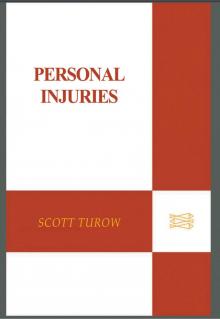 Personal Injuries
Personal Injuries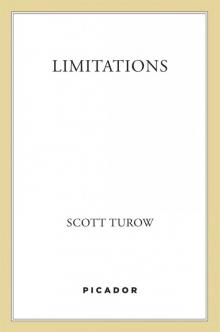 Limitations
Limitations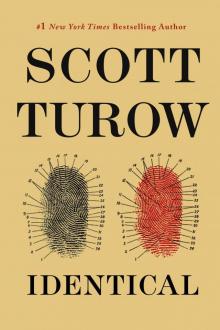 Identical
Identical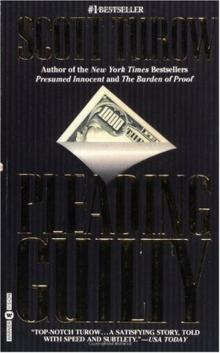 Pleading Guilty
Pleading Guilty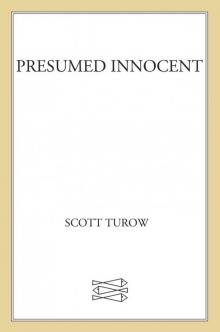 Presumed Innocent
Presumed Innocent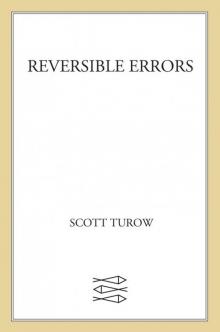 Reversible Errors
Reversible Errors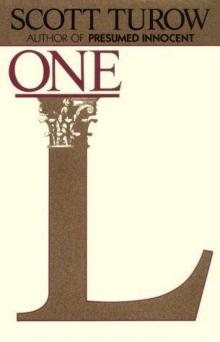 One L: The Turbulent True Story of a First Year at Harvard Law School
One L: The Turbulent True Story of a First Year at Harvard Law School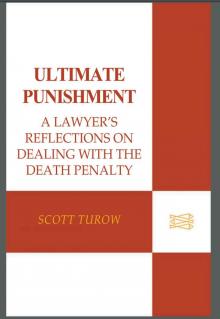 Ultimate Punishment
Ultimate Punishment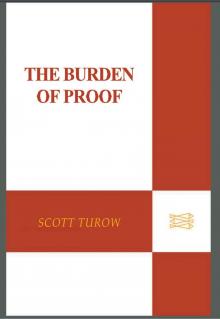 The Burden of Proof
The Burden of Proof Ordinary Heroes (2005)
Ordinary Heroes (2005)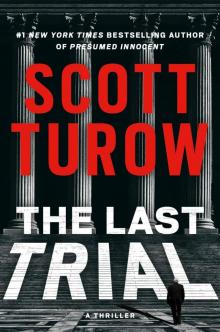 The Last Trial
The Last Trial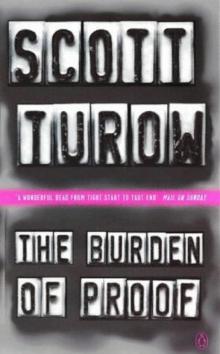 The Burden of Proof kc-2
The Burden of Proof kc-2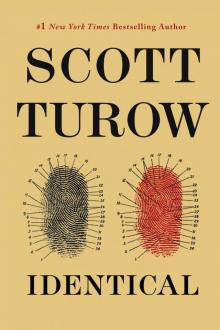 KC09 - Identical
KC09 - Identical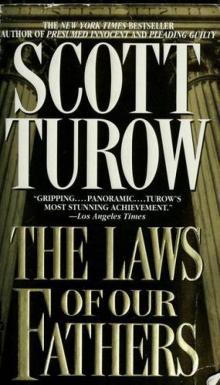 The Laws of our Fathers kc-4
The Laws of our Fathers kc-4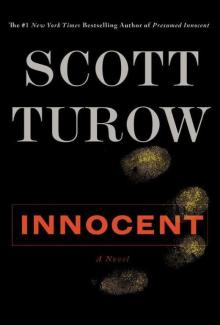 Innocent kc-8
Innocent kc-8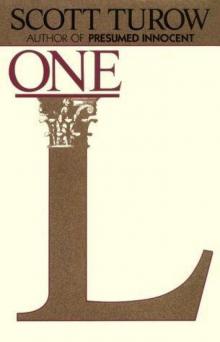 One L
One L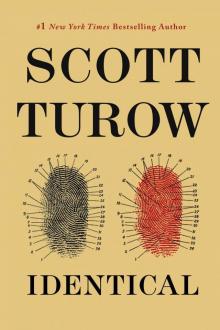 Identical kc-9
Identical kc-9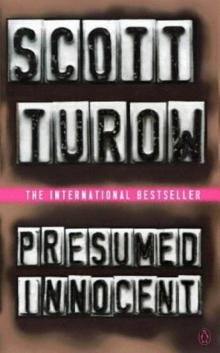 Presumed innocent kc-1
Presumed innocent kc-1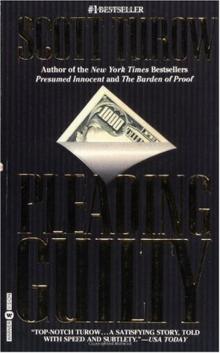 Pleading Guilty kc-3
Pleading Guilty kc-3 One L (1977)
One L (1977)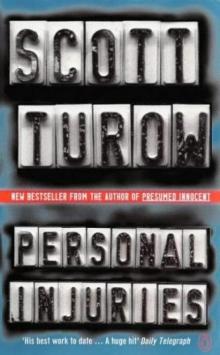 Personal injuries kc-5
Personal injuries kc-5